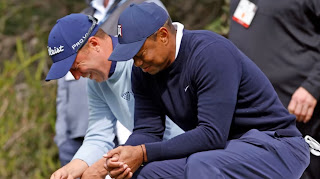I was given a chance to teach about women and sports at Regis Jesuit High School's 18th annual Diversity Day. This session was born from a presentation by students in a social justice course. Three young women asked these essential questions:
- What do you think the biggest gender inequalities in sports are from an economical standpoint?
- How do you think sponsorship differs based on an athlete’s gender?
- What do you think would solve gender inequalities in sports?
I added one of my own
- Remaining Grounded in Gratitude: Where do we go from here? What might we celebrate at the 100 year anniversary of Title IX?
Where do we go from here? invites one to consider what do we want and to imagine what might be. I invite school and athletic leaders to pause and envision our hopes and dreams for the future— especially for women in sport.
The presentation and conversation that followed was important and quite fruitful. I left with more questions than answers—both surprising and challenging. In short, it was the tale of two presentations: What is? and the ever important question, Why? More on that to come...
Like many schools, Regis Jesuit adopted a theme for the 2022-2023 school year: "Grounded in Gratitude." Gratitude, or thanksgiving is a timeless, evergreen value, principle and foundation. To think of ourselves grounded or rooted in it is life giving, but, it's not static. Gratitude is dynamic and so the question, Where do we go from here?. Therefore my focus was to reflect on what we can be grateful for insofar as what women have done in sports, evaluate where we are today and imagine what we want for the future.
I could speak to where we were 50 years ago, but the bottom line is women were grateful to have any chance to participate in sports, period. Opportunities, access to facilities and resources though limited did not go appreciated. Lesley Visser, author “She’s Got Game” writes, "Every female athlete today owes her gratitude to the women who overcame those obstacles, both on the court and in the courts." And in the court was the passing of a federal civil writes law known as Title IX.
On June 23, 1972 President Nixon signed 37 words into law that prohibited gender discrimination in public education and federally assisted programs, including high school and collegiate athletic programs.
On June 23, 1972 President Nixon signed 37 words into law that prohibited gender discrimination in public education and federally assisted programs, including high school and collegiate athletic programs.
In 1971, before Title IX passed, only 1% of college athletic budgets went to women’s sports programs. At the high school level, male athletes outnumbered female athletes 12.5 to 1. Today the margin is much narrower.
Truly, we have so much to be grateful for. I let a number of photos capture what I see as progress, worth celebrating and made possible because of Title IX.
- the WNBA was the first to organize and take action in response to the death of George Floyd
- Paula Badosa of Spain was one of the first athletes—before Michael Phelps, Kevin Love and even Naomi Osaka to speak openly about her struggle with mental health.
- Sarah Thomas was the first female to referee in the Super Bowl
- There are many female coaches in the NFL
- No longer are men the only announcers in sports.
- Female athletes/teams and their achievements are sources of great joy and pride. Thank you ND Women's Hoop!
- The list goes on...
While we have taken so many steps forward, Muffet McGraw has said “Title IX at 50 is a celebration, but it still demands constant vigilance."
No where was the more evident than in the disparity between what what was offered to men and women in the NCAA basketball tournament. Thanks to Oregon basketball player, Sedona Prince put into place—just by doing what she had already been doing: sharing her world via TikTok—equitable resources, amenities and facilities for women and men's team in what is now known as March Madness for all.
While I could continue with ideas and projections for the next 50 years, a huge part of me wishes I had simply stopped in the here and now. I am not convinced that should not have stayed with the reality of today and asked the hard questions. When I take a step back and think about it. This is what I want to know:
While I could continue with ideas and projections for the next 50 years, a huge part of me wishes I had simply stopped in the here and now. I am not convinced that should not have stayed with the reality of today and asked the hard questions. When I take a step back and think about it. This is what I want to know:
- Why is it that we are unfamiliar or unaware of women in sport unless they are either tremendously successful or extremely attractive?
- Why do we value women's sports so much less than men's sports?
- Why are we comparing women's sports to men's sports, period?
- Why do we not take female athletics (as) seriously?
- Why do we continue to offer so little news coverage and highlights of women in sport?
- Why do men put down other men (and women) by telling one another they hit, throw or run like a girl (see Tiger Woods story at Genesis Open)
- Assume the good
- We are trying to get somewhere together. This session is not meant to put one gender against the other. It will however ask questions rooted in a Faith that does Justice. In other words, our questions will ask "Why?" ....and those questions ask us to look beyond the mighty dollar
- We cannot speak for all people at all times. There will always be counterpoints and counter examples. We can acknowledge and respect that all the while aim toward getting somewhere together.
- In this presentation I will present positives and negatives.
- Your own experience and stories have value.
In the United States, March has been designated Women's History Month—commemorating and encouraging the study, observance and celebration of the vital role of women in American history.
The Library of Congress, National Archives and Records Administration, National Endowment for the Humanities, National Gallery of Art, National Park Service, Smithsonian Institution and United States Holocaust Memorial Museum join in commemorating and encouraging the study, observance and celebration of the vital role of women in American history. I would argue educators have a responsibility to do their part, share the stories and raise awareness about the impact women have had in society, culture and sport—when and where it is appropriate. And when given the chance, do just ask the formal questions. Ask the real ones...the hard ones....the honest ones....and take it from there.
Stamp
Arike
Tiger and JT
Where to from here?







Cannot agree more. As a female athlete it is amazing to me the stereotypes that still exist, but I always think of all the opportunities that I had - and those my mother did not. And as much as I had, I want more for my kids. I don’t want Abby to swim against girls- but just swimmers. Why can’t it just be everyone? I did another triathlon last week and my friend placed in the “women’s” category - but why not overall? Why distinguish the two genders? Why distinguish any gender? I don’t mind. I want an equal playing field. I played coed soccer and it was awesome. Speaking of old terms: coed. We need to throw that word away with the past.
ReplyDelete